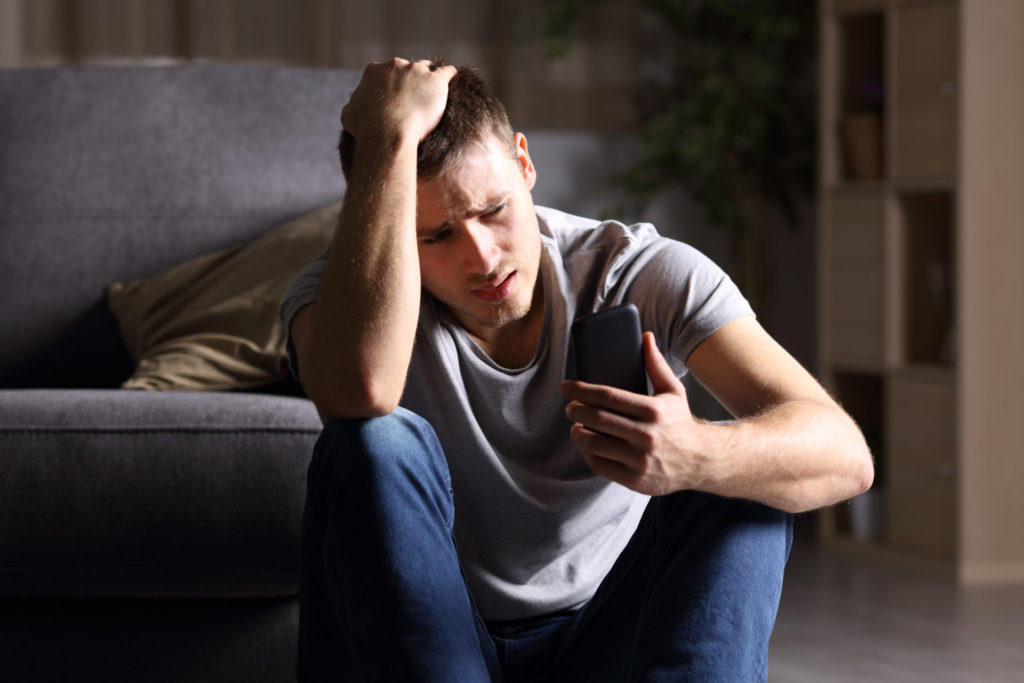
As more and more people find themselves working from home and navigating other aspects of pandemic life, you may find yourself talking on the phone more than usual. Despite the use of texting, emailing and Zoom video calls, speaking over the phone with no face-to-face interaction has remained a staple of everyday life. You can reserve a table at your favorite restaurant using an online app, but how do you communicate if you are running late? You may be able to schedule your doctor’s appointment online, but what happens when you need additional assistance outside of the structured online forms?
What is phone anxiety?
According to Alison Papadakis, a psychologist at Johns Hopkins University, there are clinical reasons as to why you experience phone anxiety. Without the body language to help convey your message, you may feel unequipped to communicate without it. By just relying on your voice, jokes and tones can be misinterpreted, leaving you with a sour taste in your mouth the next time you reach to answer your cell phone.
Phone anxiety can be a symptom of a larger mood disorder, such as social anxiety disorder, but can also exist completely independent of a deeper disorder. Phone anxiety can surface in many different ways. Some people experience physical reactions to even thinking about picking up the phone with heart palpitations, shaking, or sweating palms. Others will simply avoid phone calls altogether and change their actions solely based on the fact that speaking on the phone is not an option for them. Other symptoms may include obsessing over what was said in a phone call long after the call is over, delaying making time-sensitive phone calls, or worrying you will bother someone by simply calling them.
COVID-19 and phone anxiety
In response to the COVID-19 pandemic, nearly 34% of adults in the United States reported symptoms of an anxiety disorder in July 2020. In a time when many people are experiencing symptoms of anxiety, including some who may have never experienced them before, take solace in the fact that many people may be feeling the same way.
Many business models are having to switch to telecommunication in lieu of normal interaction due to social distancing. Even simple errands like picking up your library books, which could have been done without speaking to a single person in the past, now may require you to call upon arrival. As it seems social distancing is a part of our “new normal,” there is no better time to conquer your fear of speaking on the phone.
How to cope
Knowing that many people experience phone anxiety should help put you at ease; the other person on the end of the line is probably feeling very similar to how you feel. Here are some tips on how to cope with nervousness or general anxiety before and during a phone call:
- Before you call, practice some breathing exercises to get you into the right headspace. Inhale slowly through your nose for five seconds. Then, hold your breath for another five seconds. Exhale slowly through the mouth and repeat several times.
- Call someone you’re more comfortable speaking with first. Calling a friend or family member you find much easier to speak with may make tackling an important call with a stranger seem much more doable and put your mind at ease.
- During the call, feel free to walk around and use gestures. Acting as if you are having a face-to-face conversation can make the conversation more fluid.
- Keep in mind that if the person you are calling were too busy to speak, they simply would not answer the call: you aren’t bothering them. When they answer the phone, they are ready to hear what you have to say.
- Prepare a script and practice. Even people who work in professions that use cold calling have a script they follow to ensure a fluid and effective conversation. If you get lost during your call, just refer to the key points you have written down. For example, when calling API to make an appointment start with something simple such as, “Hi! My name is and I’m interested in your services. Can you direct me to the appropriate person to make an appointment?”
If you feel you are unable to get your phone anxiety under control on your own, or feel it could be reflective of a larger mood disorder, our staff at API is here to help. Our reception staff is fully aware of how difficult it can be to make the decision to call for help and are here to make the process easy and productive. Reach us anytime, 24/7, at 619-333-7050 to talk about our anxiety treatment programs.
